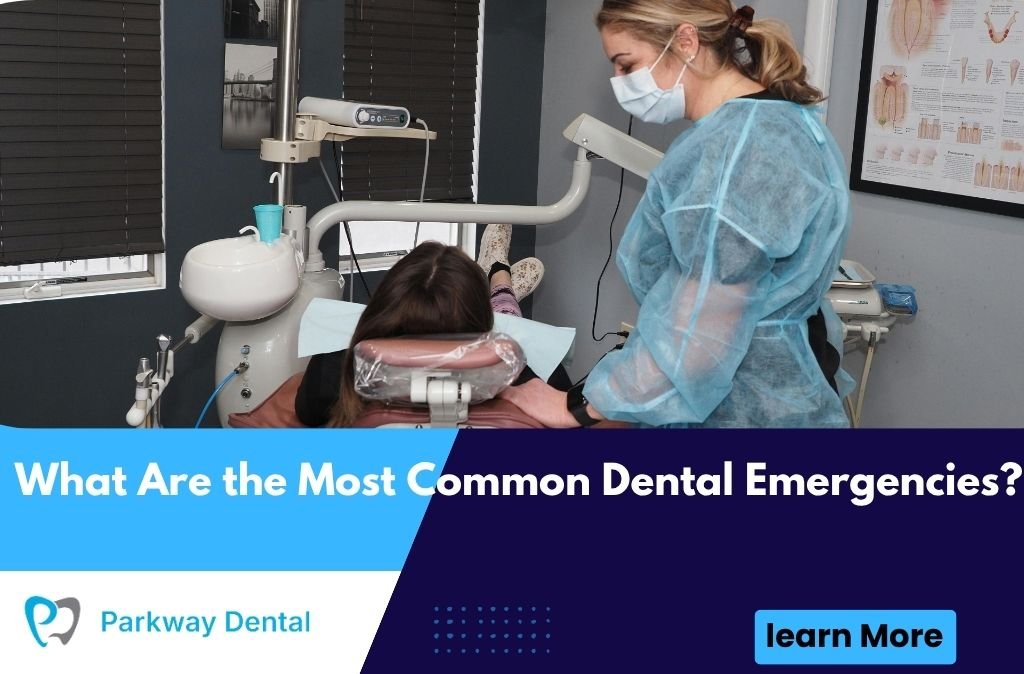A dental abscess or tooth infection is a serious oral health condition that can cause significant pain, discomfort, and potentially life-threatening complications if left untreated. These dental emergencies often result from untreated tooth decay, gum disease, or dental trauma, leading to a buildup of pus in or around a tooth. Recognizing the signs of a dental abscess early is critical for seeking prompt emergency dental care to prevent tooth loss or the spread of infection. In this comprehensive guide, we’ll explore the key symptoms of a tooth infection, their causes, and how to address them effectively to maintain your healthy smile. Whether you’re in West Roxbury, MA, or elsewhere, understanding these warning signs will help you act swiftly and protect your oral wellness.
Table of Contents
Understanding a Dental Abscess and Tooth Infection
A dental abscess is a pocket of pus caused by a bacterial infection in the tooth or surrounding gums, often classified as periapical (at the tooth root) or periodontal (in the gums). A tooth infection typically develops when bacteria invade the tooth pulp or gum tissue, leading to inflammation and pain. Early detection of these oral health issues is essential to avoid dental complications like jawbone damage or systemic infections.
Causes of a Dental Abscess or Tooth Infection
Tooth infections often stem from advanced tooth decay that reaches the pulp, allowing bacteria to thrive. Gum disease, such as gingivitis or periodontitis, can cause periodontal abscesses by trapping bacteria in gum pockets. Dental trauma, like a cracked tooth or injury, can also introduce bacteria, leading to infection. Poor oral hygiene, a diet high in sugar, or neglected dental checkups increase the risk. Understanding these causes highlights the importance of preventive dentistry to reduce dental emergency risks.
Why Early Detection of Tooth Infection Symptoms Matters
Ignoring the signs of a dental abscess can lead to severe consequences, including the spread of infection to the jaw, neck, or bloodstream, potentially causing sepsis. Early intervention through emergency dental treatment can save your natural tooth, alleviate pain, and prevent oral health complications. Regular dental visits and good oral care practices help catch infections before they escalate.
Key Signs of a Dental Abscess or Tooth Infection
Recognizing the symptoms of a tooth infection is crucial for seeking timely dental care. The following warning signs indicate a potential dental abscess that requires immediate attention.
Severe Toothache as a Primary Symptom
A severe toothache is one of the most common signs of a dental abscess, characterized by persistent, throbbing pain that may radiate to the jaw, ear, or neck. This tooth pain often worsens with chewing, hot/cold foods, or pressure. The infection irritates the tooth nerve, causing intense discomfort that disrupts daily activities like eating or sleeping. If you experience unrelenting toothache, contact a dentist immediately for an oral health assessment.
Swelling in Gums or Face
Swelling around the affected tooth or gums is a hallmark symptom of a tooth infection. You may notice a pimple-like bump (gum boil) on the gums, which may ooze pus, indicating a dental abscess. In severe cases, facial swelling can extend to the cheeks, jaw, or neck, causing asymmetry or discomfort. This swelling signals that the infection is spreading, requiring urgent emergency dental care to prevent further complications.
Tooth Sensitivity to Hot or Cold
Increased tooth sensitivity to hot, cold, or sweet foods and drinks is a common sign of a dental abscess. This sensitivity occurs when the infection affects the tooth pulp, making the tooth react strongly to temperature changes. If brushing or drinking causes sharp pain, it’s a red flag that a tooth infection may be present, necessitating a visit to a dental office for evaluation.
Fever and General Malaise
A fever or feeling of general unwellness often accompanies a tooth infection, especially if the infection spreads beyond the tooth. Fever indicates the body is fighting a bacterial infection, and symptoms like fatigue, chills, or nausea may also occur. These systemic warning signs suggest a dental emergency, requiring immediate dental treatment to address the infection and prevent sepsis.
Bad Breath or Bad Taste in the Mouth
Persistent bad breath or a foul taste in the mouth is another symptom of a dental abscess, caused by pus or bacterial buildup in the infected tooth or gums. This oral odor may persist despite brushing or rinsing, and a bitter taste can result from pus drainage. These signs often accompany other symptoms like pain or swelling, indicating a need for emergency dental care.
Difficulty Chewing or Swallowing
A tooth infection can make chewing painful, especially if swelling or inflammation affects the gums or jaw. In severe cases, difficulty swallowing or breathing may occur if the infection spreads to nearby tissues, signaling a life-threatening dental emergency. Immediate dental attention is critical to manage the infection and restore oral function.
Immediate Steps to Take for a Suspected Dental Abscess
If you notice signs of a tooth infection, taking prompt action can minimize pain and prevent complications. While these steps provide temporary relief, professional dental care is essential for proper treatment.
At-Home Pain Relief and Infection Management
Rinse your mouth with warm saltwater to reduce inflammation and clean the infected area. Take over-the-counter pain relievers like ibuprofen to manage tooth pain and swelling. Apply a cold compress to the cheek to alleviate facial swelling. Avoid hot foods or drinks, which can worsen discomfort, and do not attempt to pop a gum boil, as this can spread the infection.
When to Seek Emergency Dental Care
Contact a dentist immediately if you experience severe toothache, swelling, fever, or difficulty swallowing. These warning signs indicate a dental abscess that could escalate without treatment. In West Roxbury, MA, many dental offices offer emergency dental services to address tooth infections promptly, ensuring oral health is restored.
Treatment Options for a Dental Abscess or Tooth Infection
Dental abscess treatment focuses on eliminating the infection, relieving pain, and preserving the natural tooth whenever possible. A dentist will assess the severity to determine the best approach.
Root Canal Therapy to Save Your Natural Tooth
Root canal therapy is a common treatment for a periapical abscess, where the infection is inside the tooth. The dentist removes the infected pulp, cleans the root canals, and seals the tooth, often capping it with a crown to restore oral function. This tooth-saving procedure prevents tooth extraction and maintains dental aesthetics.
Draining the Dental Abscess
For periodontal abscesses or severe cases, the dentist may drain the pus through a small incision in the gums. This relieves pain and swelling while addressing the infection. Antibiotics may be prescribed to eliminate residual bacteria, especially if the infection has spread.
Tooth Extraction for Severe Cases
If the tooth is too damaged to save, tooth extraction may be necessary. The dentist will remove the infected tooth and discuss tooth replacement options like dental implants or bridges to restore your smile. This is typically a last resort when root canal therapy isn’t viable.
Preventing Dental Abscess and Tooth Infection
Preventing a dental abscess starts with proactive oral hygiene and regular dental care to minimize the risk of tooth decay and gum disease.
Maintaining a Strong Oral Hygiene Routine
Brush twice daily with fluoride toothpaste, floss to remove plaque between teeth, and use an antimicrobial mouthwash to reduce bacteria. These habits prevent cavities and gum infections, key contributors to tooth infections.
Regular Dental Checkups for Early Detection
Schedule dental checkups every six months for professional cleanings and oral health assessments. Dentists can detect early signs of tooth decay or gum disease, addressing them before they lead to a dental abscess.
Avoiding Dental Trauma and Harmful Habits
Protect teeth from trauma by wearing a mouthguard during sports or if you grind your teeth (bruxism). Avoid chewing hard objects like ice, which can cause cracked teeth, increasing infection risk.
Conclusion
Recognizing the signs of a dental abscess or tooth infection, such as severe toothache, swelling, tooth sensitivity, fever, bad breath, or difficulty chewing, is vital for seeking timely emergency dental care. These oral health emergencies can escalate without treatment, leading to tooth loss or systemic infections. By taking immediate steps and consulting a dentist, you can address the infection, relieve pain, and save your natural tooth. Preventive measures like oral hygiene and regular dental visits reduce the risk of dental abscesses. For expert care in West Roxbury, MA, contact a trusted Dentist in West Roxbury, MA to manage tooth infections and maintain your healthy smile.
FAQs
What are the main signs of a dental abscess?
Key symptoms include severe toothache, swelling in the gums or face, tooth sensitivity, fever, bad breath, and difficulty chewing.
Can a tooth infection go away on its own?
No, a tooth infection requires professional dental care like root canal therapy or drainage to prevent complications like tooth loss.
How is a dental abscess treated?
Treatment may involve root canal therapy, draining the abscess, antibiotics, or tooth extraction if the tooth can’t be saved.
How can I prevent a dental abscess?
Maintain oral hygiene, schedule regular dental checkups, and avoid dental trauma to reduce the risk of tooth decay and gum disease.
When should I see a dentist for a tooth infection?
Seek emergency dental care immediately if you experience severe pain, swelling, fever, or difficulty swallowing, as these indicate a dental emergency.





